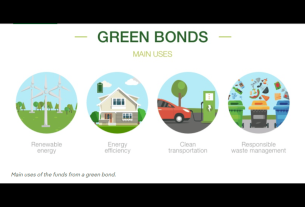
The urgency to take decisive climate action has never been greater, and at the European Commission we’ve been busy working on that in 2023. Here are some of the highlights of the past 12 months.
1. Fit for 55 climate package adopted!
Two years after presenting the Fit for 55, this year the EU adopted the final parts of its ambitious legislative package to make sure we deliver on our 2030 climate targets. This shows thatEurope is leading the way on climate action and the green transition for the benefit of citizens and industries.
2. COP28 achieved significant progress
COP28 in Dubai produced a positive outcome, with headway made on a Loss and Damage fund, and a final agreement that calls on all countries to ‘transition away from fossil fuels’ and sets a 2030 timeline to triple global renewable energy capacity and double energy efficiency. Read more here
3. Innovation Fund boosts clean tech
The Innovation Fund is one of the world’s largest funding programmes for the demonstration of innovative low-carbon technologies, and it’s come on leaps and bounds in 2023, having already awarded around €6.5 billion to more than 100 highly innovative projects.
Most recently, we launched a new call worth €4 billion with a greater focus on green manufacturing.
Discover how the Innovation Fund is backing impressive green technologies from harnessing geothermal energy and producing green steel, to developing clean batteries,regenerating used oil via a new circular technology, and building the largest solar factory in Europe.
In February, we launched the Green Deal Industrial Plan worth €660 billion to enhance the competitiveness of EU green industry and speed up its transition to climate neutrality. The Plan aims to make it easier for green industries to scale up the EU’s manufacturing capacity for the net-zero technologies and products required to meet Europe’s ambitious climate targets. Get the details here.
5. European Hydrogen Bank launched
In November, we launched the European Hydrogen bank – an auctioning system that will boost production of renewable hydrogen in Europe. €800 million of financial support from the EU ETS (Emissions Trading System) revenues will bridge the gap between the price of production and the price consumers are currently willing to pay, in a market where non-renewable hydrogen is still cheaper to produce.
Learn more about this exciting new policy development by listening to this podcast with our green tech expert Johanna Schiele.
6. Modernisation Fund continues to help clean up energy
In its third year of operation, the Modernisation Fund has provided a total of €4.66 billion in support of 50 projects in nine EU countries to help modernise their energy systems, reduce greenhouse gas emissions in energy, industry and transport, and improve energy efficiency. The total funding from the Modernisation Fund since it began two years ago has now reached €9.68 billion.
7.Road transport gets greener
Early in the year, we had the great news that emissions from new cars and vans began to fall in 2022, as zero-emissions vehicles grow in popularity and electric cars now accounting for 23% of the new car market. In parallel the EU and its Member States agreed to make all new cars emission-free as of 2035, and are coming close to adopting more ambitious legislation on emissions from lorries and other heavy-duty vehicles, hailing a new dawn of clean, green transport on our roads. Learn more about electric vehicles and some of the myths about them here.
8. Space: the final frontier in climate action
In November, the European Commission joined forces with the European Space Agency and agreed to work more closely to use Earth-observing satellites like Copernicus and the information they provide on the climate, atmosphere, oceans and land to address the climate crisis. For example, satellite data can help us better understand deforestation, conditions for agriculture and changing weather patterns. Learn more about the collaboration here. Satellite data will be especially helpful in informing decisions we make about how to become more resilient to climate change and adapt to the impacts of global warming.
9. Most Europeans think the green transition should go faster
Our most recent Eurobarometer survey of people across the EU found that the climate crisis remains among the top of their concerns, with 93% considering global warming to be a serious problem.
What’s more, most respondents think we should speed up the green transition. Read the full report on Europeans’ attitudes to the climate crisis and what we’re doing about it.
10. The EU Day for the Victims of the Global Climate Crisis
In Summer, representatives from the European Commission, Parliament and Council signed a joint declaration to inaugurate 15 July as the EU Day for the Victims of the Global Climate Crisis. The date falls on the anniversary of deadly floods that took many lives in Belgium, Germany, the Netherlands, and Luxembourg in 2021. The annual event seeks to raise awareness of action people can take to help prevent disasters from happening and to be better prepared for them.
11. Nurturing nature
In November, we struck a deal on the Nature Restoration Law, which will help us fight both the climate and nature crises. The legislation sets binding targets to restore 20% of our land and seas by 2030, and 90% of degraded habitats by 2050.
12. New international partnerships for a greener future
2023 saw the EU forging new green alliances with both Norway and Canada and a green partnership with Korea to deepen cooperation on climate action, clean energy and environmental protection. Besides that, the EU also helped launch a Just Energy Transition Partnership with Senegal, and struck a Strategic Forest Partnership with Honduras to restore 1.3 million hectares of forest in the Central American country.


